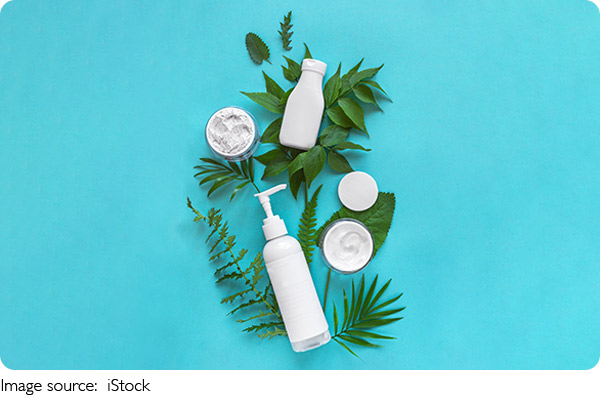Plant Skin Care

Dry patches, early wrinkles, dull tone—if your skin's been sending distress signals lately, it might not be your moisturizer's fault. The solution could lie in something as simple and overlooked as a plant-based vitamin.
Today, we're diving into one of the most powerful—but often underrated—skin allies: Vitamin E.
Found abundantly in nuts, seeds, and leafy greens, Vitamin E isn't just a nice-to-have—it's essential for maintaining healthy, radiant skin from the inside out.
Why Vitamin E Deserves the Spotlight
Vitamin E, scientifically known as tocopherol, is a oil-soluble antioxidant naturally present in many plant-based foods. While Vitamin C often steals the spotlight, Vitamin E plays a unique role in protecting skin cells from oxidative stress caused by everyday factors like sun exposure, pollution, and even stress.
What makes Vitamin E different? It integrates into cell membranes, acting as a defensive shield that neutralizes free radicals before they can damage your skin. In simpler terms: it keeps your cells young, elastic, and resilient.
1. Repairing the Skin Barrier
Our skin barrier is like a brick wall—cells are the bricks, and lipids are the mortar. When that mortar breaks down (thanks to over-cleansing, cold weather, or poor diet), moisture escapes and irritants creep in. That's when Vitamin E steps in.
How it helps:
Vitamin E helps restore this barrier by replenishing the lipids in your skin. This reduces water loss and strengthens your skin's ability to defend itself naturally.
Plant sources rich in Vitamin E:
• Sunflower seeds
• Almonds
• Avocados
• Spinach
• Butternut squash
Just a handful of sunflower seeds or a spoonful of almond butter a day can start making a visible difference.
2. Combating Premature Aging
We can't stop aging, but we can influence how we age. Free radicals accelerate wrinkles and age spots. Vitamin E neutralizes these unstable molecules before they can harm skin tissue.
What research says:
A study published in the Journal of Dermatological Science found that a combination of Vitamin E and Vitamin C significantly reduced signs of photoaging. While the study focused on supplements, food-based Vitamin E offers long-term skin benefits without the risk of overdose or imbalance.
3. Calming Inflammation and Redness
Do you struggle with sensitive, reactive skin? Vitamin E may help calm the storm. Thanks to its natural anti-inflammatory properties, it helps soothe redness and irritation from conditions like eczema or rosacea.
Best calming food combos:
• Spinach + olive oil (Vitamin E + healthy oil for absorption)
• Avocado + pumpkin seeds (double dose of soothing plant lipids)
• Steamed broccoli + sesame oil
Cooking tip: Since Vitamin E is oil-soluble, it's best absorbed when paired with a healthy oil like olive oil, flaxseed oil, or avocado.
4. Supporting Skin Healing
Minor cuts, acne scars, sunburn—Vitamin E may accelerate your skin's healing process. That's why it's a common ingredient in after-sun gels or healing creams. But internal intake is just as important as topical use.
How it works:
Vitamin E supports the body's ability to regenerate new skin cells and improve blood circulation in damaged areas, allowing wounds to heal faster with less scarring.
How Much Vitamin E Do You Really Need?
According to the National Institutes of Health (NIH), the recommended daily intake for adults is around 15 mg (22.4 IU) of Vitamin E. That's roughly:
• 2 tablespoons of sunflower seeds
• 1 ounce (28 grams) of almonds
• Half an avocado
Overdoing it with supplements can lead to imbalance or interference with blood clotting, so food sources are the safest route unless otherwise advised by a physician.
Build Your Skin-Loving Plate
Here's a sample Vitamin E-rich day to boost your skin from within:
Breakfast:
• Whole-grain toast with almond butter
• Smoothie with spinach, mango, and chia seeds
Lunch:
• Quinoa salad with avocado, pumpkin seeds, and olive oil
Dinner:
• Steamed broccoli with sesame oil
• Baked sweet potato with sunflower seed topping
Small dietary shifts can create visible changes—no need for expensive creams or complex regimens.
Is Vitamin E for Everyone?
Mostly yes—but individuals with certain medical conditions (like bleeding disorders or those on blood thinners) should check with a healthcare provider before increasing their Vitamin E intake. For most healthy individuals, plant-based sources are a safe and effective addition to a skincare-supportive diet.

If you've been focusing only on topical skincare but still battling dull, irritated skin, maybe it's time to turn your attention inward. Nature has already gifted us powerful tools—sometimes all it takes is a spoonful of seeds, a slice of avocado, or a handful of greens.
What's one Vitamin E-rich food you'll try to add to your meals this week? Let your kitchen become part of your skincare routine—and your skin just might thank you for it.


